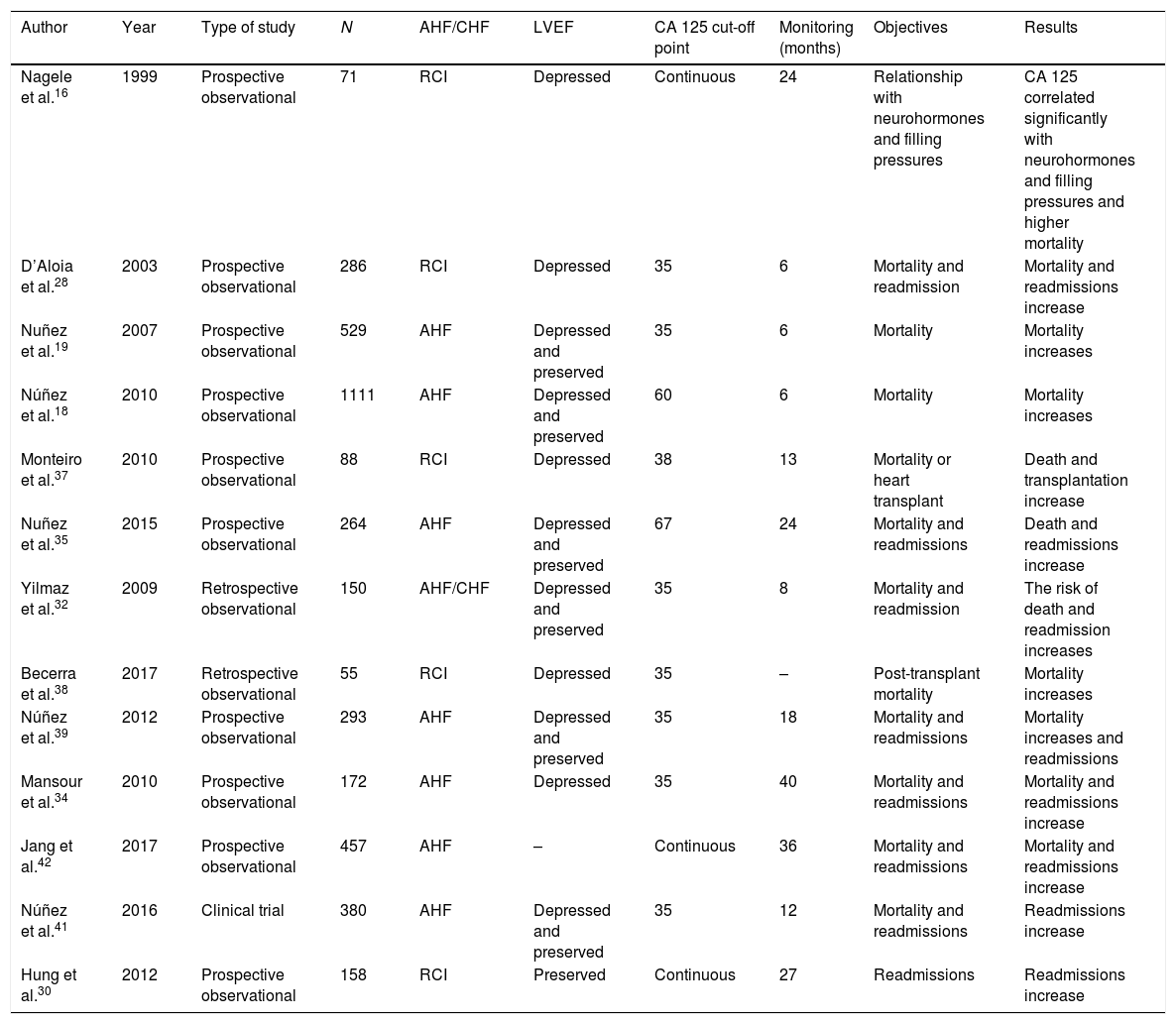In recent years, we have seen a great interest in the search for new biomarkers in heart failure (HF), fundamentally in the field of diagnosis, prognosis, monitoring and as a therapeutic guide. However, most of them do not meet the required criteria for daily clinical practice.
The carbohydrate antigen 125 (CA 125) is the mucin 16 glycoprotein (MUC16) antibody, and its use has been restricted to the therapeutic monitoring of ovarian cancer; however, its elevation is confirmed in other non-tumour processes such as HF. In this last scenario, CA 125 is synthesised by serous epithelial cells in response to congestion and/or inflammatory stimuli. In recent years, increasing evidence has emerged suggesting that plasma levels of this glycoprotein could be useful as a biomarker in HF. CA 125 levels correlate with clinical, haemodynamic and echocardiographic parameters related to the severity of the disease, as well as being independently associated with mortality or readmission due to HF. From the clinical perspective, CA 125 provides information on the degree of extravascular congestion present in HF. Recent evidence consistently shows that its kinetics after admission due to decompensation offer an excellent predictive capacity for adverse events and to guide treatment, mainly diuretic. These qualities make it an ideal candidate for use in evolutionary monitoring and to guide depletive treatment in HF.
Asistimos en los últimos años a un gran interés en la búsqueda de nuevos biomarcadores en la insuficiencia cardiaca (IC); fundamentalmente, en el ámbito del diagnóstico, pronóstico, monitorización y como guía terapéutica. Sin embargo, la mayoría de ellos no cumplen los criterios requeridos para ser utilizados en la práctica clínica diaria.
El antígeno carbohidrato 125 (CA 125) es el anticuerpo de la glucoproteína mucina 16 (MUC16) y su uso se ha restringido a la monitorización terapéutica del cáncer de ovario. Sin embargo, se ha constatado su elevación en otros procesos no tumorales como la IC. En este último contexto, el CA 125 es sintetizado por las células serosas epiteliales en respuesta a la congestión o estímulos inflamatorios. En los últimos años son numerosas las publicaciones que señalan que las concentraciones plasmáticas de esta glucoproteína podrían ser de utilidad como marcador biológico en IC. La concentración de CA 125 se correlaciona con parámetros clínicos, hemodinámicos y ecocardiográficos relacionados con la gravedad de la enfermedad y se ha demostrado que se asocia de forma independiente con la mortalidad o el reingreso por IC. Desde la perspectiva clínica, el CA 125 ofrece información del grado de congestión extravascular presente en la IC. La evidencia reciente muestra de manera constante que su cinética tras un ingreso por descompensación ofrece una excelente capacidad predictiva para episodios adversos y para guiar el tratamiento, fundamentalmente diurético. Estas cualidades hacen de este un candidato ideal para su uso en la monitorización evolutiva y como guía del tratamiento depletivo en IC.










